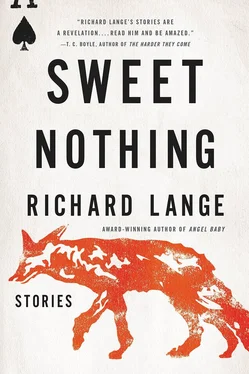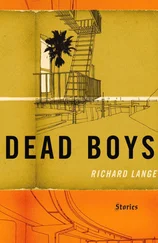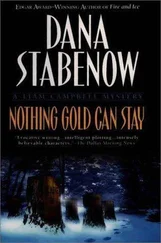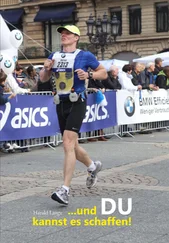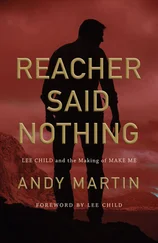One year ago tonight I was squatting in the basement of an abandoned house near Dodger Stadium with an old junkie named Tom Dirt. He’d picked up a check from the VA and managed to cash it without identification, and the money was burning a hole in his pocket. His knee was giving him trouble, so he said if I’d fly, he’d buy. I went to see my man and returned with a little tar for Tom and a fat rock for me.
We sat on a couple of filthy mattresses and got ourselves to where we needed to be by the only light we had, a few flickering candles that threw crazy shadows that kept me jumping.
Tom jerked out of a nod at one point and shouted, “Merry Christmas!”
“It’s not Christmas,” I said. “It’s my birthday.”
“Okay, so happy birthday,” Tom said, and coughed into his fist so long and so hard, I thought he was done for.
But he lived on, and so did I. Jesus fuck, it’s a mystery, all of it. Smoke a cigarette, change the channel, stare into space. Then go to sleep, go to work, and come home again, over and over and over, until all your questions are answered or you forget you ever wondered.
PAPÁ GETS HOME FROM work at six and tells Miguel and his little brother, Francisco, to turn off the Xbox and put on the news. Miguel glances at Francisco with raised eyebrows, like, What’s up with that? , because the old man normally heads right for the shower to wash off the sweat and plaster dust before the family has dinner.
The newscaster is talking about a wildfire that’s burning out of control east of San Diego. Papá shoos Miguel and Francisco off the couch and sits in front of the TV, leaning forward to watch intently. Mamá pokes her head in from the kitchen, a worried look on her face, and Miguel can tell she’s freaked too by the change in routine.
“What’s going on?” she says.
“A fire at the border,” Papá replies.
Mamá walks into the living room, a dish towel twisted in her hands. “And so?”
“Alberto and Maria are crossing tonight.”
Alberto is Miguel’s cousin, Papá’s nephew. Maria is his wife. They live in the village outside Durango where Papá was born, a place so small it doesn’t even have a name. Papá drags the whole family down there every couple of years for a visit, trips Miguel dreads because it’s hot and dirty, and the food sucks, and the only bathroom is an outhouse buzzing with flies. Alberto is cool, though. He let Miguel ride his motorcycle last time they were there and took them swimming in the river. He’s only a year older than Miguel but already married, and Miguel has heard Papá say that he was thinking of coming to the U.S.
A map flashes onscreen, the location of the fire. Papá points. “El Chango’s trail is right there,” he says. “He’ll bring them that way.”
The sound of the front door opening makes Miguel jump. Carmen comes in from cheerleading practice and sees everyone staring at the TV. “What’s going on?” she says in English.
Mamá shushes her, and Papá turns up the sound. This must be some serious shit, because nothing ever gets to the old man. All he does is work and sleep, barely saying five words most days. Miguel watches him watch TV and is suddenly a little scared.
Everybody tries to act normal at dinner. They pass around the chicken and rice and listen to Carmen and Francisco bicker. But that right there is weird; Papá would normally shut them down with a look. Instead, he’s lost in thought, barely eating anything, big gristly fists clenched on either side of his plate. Miguel imitates Don Cheto, the funny guy on the radio, hoping to get a smile out of him, but no, nothing.
Later, while Miguel, Carmen, and Francisco are doing their homework at the dining-room table, Papá makes a phone call in the bedroom. When he reappears and sits on the couch, Mamá rushes in from the kitchen to ask what he found out. Miguel leans back in his chair so he can hear what they’re saying.
“They left Durango last week and met with El Chango in Tijuana,” Papá says. “Everything was in order, and they were supposed to call Rosa after crossing.” He’s talking about Aunt Rosa, his sister in San Diego. “She hasn’t heard from them yet.”
“Maybe they turned back,” Mamá says. “Maybe la migra got them.”
Papá shrugs. “Maybe.”
Francisco leans over and whispers to Miguel from behind his hand: “Are they dead?”
“You’re so fucking stupid,” Miguel whispers back, reaching out to flick the kid’s ear.
Francisco doesn’t yell or tattle or throw a fit. Even he knows this isn’t a night for those kinds of antics. Instead, he gets up and walks into the living room and puts his arms around Mamá’s waist and buries his face in her blouse. Miguel turns back to his homework but can’t concentrate. His mind is full of hungry flames that devour the equations before he can solve them.
THE COP SHOWS up at dawn, a stocky woman with a man’s haircut. Brewer is half awake when she pounds on the door of his trailer. He’s sweating in bed after a restless night, his mind drifting between past and present. His dead mother makes pancakes while “How Much Is That Doggie in the Window?” plays on an old radio, but at the same time he smells smoke from the fire that glows brighter on the horizon than the rising sun.
“Mr. Brewer,” the cop calls, banging again.
“Give me a minute,” Brewer growls.
He sits on the edge of the mattress. His shoulder hurts, his knees, and pulling on a pair of jeans is all kinds of painful. He shakes a Marlboro from the pack on the nightstand and puts a match to it as he limps to the door.
“Morning,” the cop says when he opens up. She’s the same one who came by yesterday talking about mandatory evacuations, but Brewer knows the law: they can’t force him to go; all they can do is warn him. This land, ten acres of scrub hard by the border, is the only thing his dad left him, the only thing he has left, so he’s decided to make a stand.
“You’re up bright and early,” he says to the cop.
“I was worried about you,” she replies. “The fire’s less than a mile west of here now and burning this way. I thought I could talk you into packing some stuff, and I’ll lead you out.”
Brewer steps into the yard to see for himself the smoke rising over the hills and rolling slowly toward him. The sight dries his mouth and sets his hands to trembling, but he has to trust that the preparations he’s made will enable him to ride out the blaze. He’s cut back the chaparral to create a firebreak around the trailer, sprayed retardant on the remaining shrubs, and hooked up heavy-duty hoses to all his spigots.
“I’ll be fine,” he says to the cop.
“This is the last time I’ll be passing by, and the fire crews are pulling back to the 94, so they won’t be coming either,” she says. “You’ll be on your own.”
I’ve always been on my own, he wants to tell her, but that’ll just sound dramatic. Cassius, the skinny stray that showed up a few years ago and never left, trots out of the trailer and sniffs the air, then walks over and stares up at Brewer with a worried look. The mutt was old when he arrived and is even older now, with white hair on his muzzle and a milky cataract in one eye.
Brewer reaches down to scratch the animal’s ears and asks the cop, “Will you take my dog?”
“Can’t,” she says. “It’s against regulations.”
“Well, you might as well be on your way, then. Someone must need you somewhere.”
The cop heads back to her truck but stops before reaching it and turns like she’s going to try once more to get Brewer to leave. As soon as she opens her mouth to speak, she inhales a bit of floating ash and begins to cough. After a couple of attempts to say what she was going to say, she gives up, throws Brewer a little wave, and, still coughing, climbs into her truck and drives away.
Читать дальше
